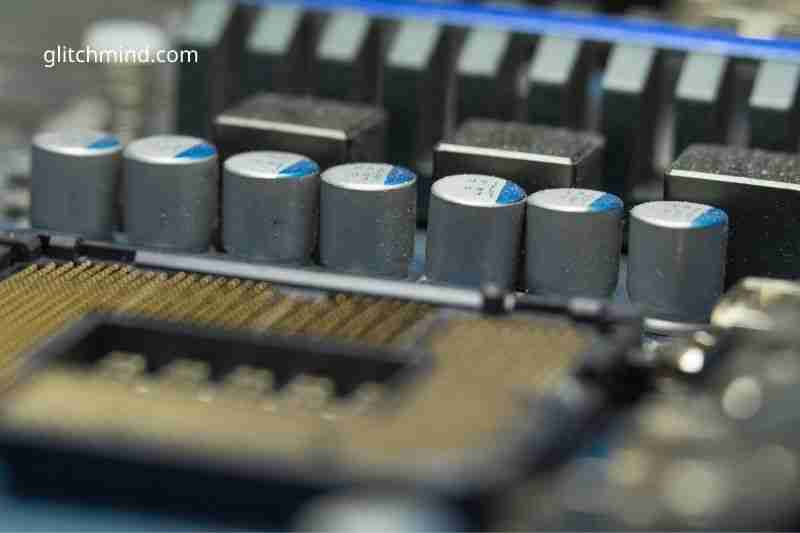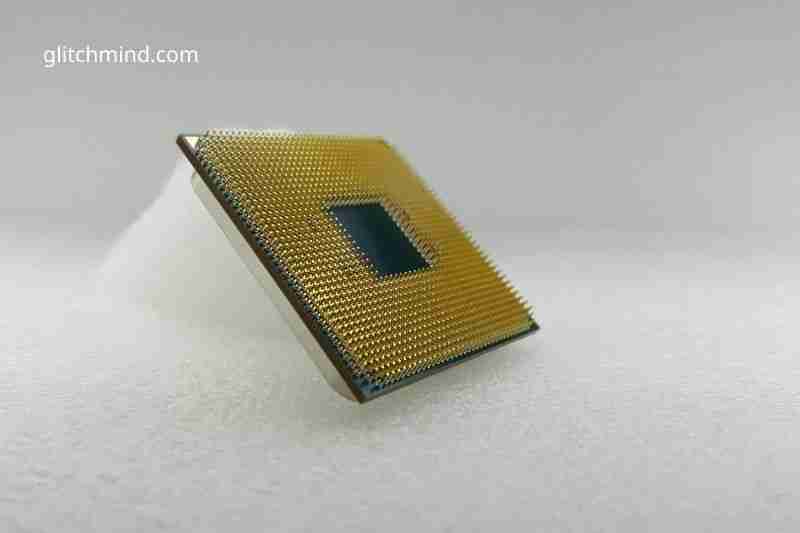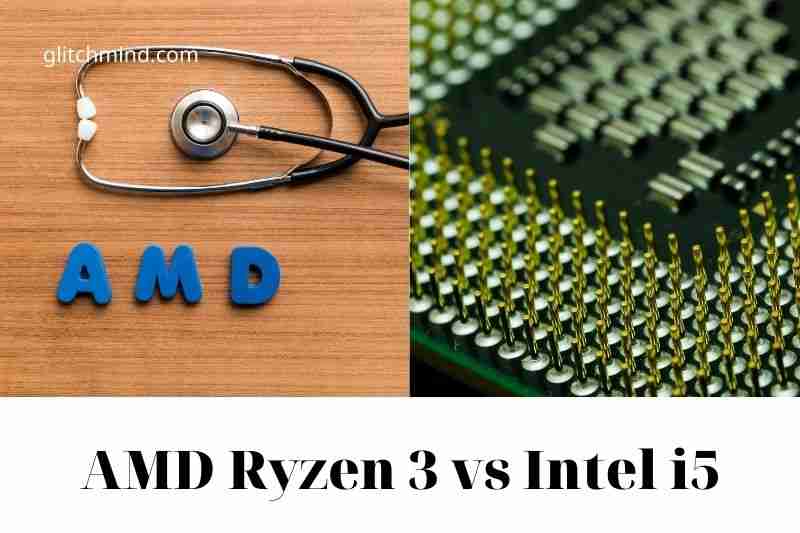AMD Ryzen 3 vs Intel i5 processors are two of the most popular options on the market for consumers looking for a new computer. They are both great processors, but what are the key differences between them? In this article, Glitchmind will compare the two processors and help you decide which one is right for you.
AMD Ryzen 3 vs Intel i5 – What’s the Difference?
We’ll start with the Intel i5 series of CPUs. The Intel i5 family consists of a range of low-end 64-bit x86 processors that can be used on both laptops and desktops. It was first created in 2009.
The Intel i5 lineup is ideal for gamers who are serious about gaming. It includes a variety of CPUs that have been designed to perform well in multitasking, speed, and performance. This makes the lineup ideal for gamers and those who want to create content.
We’re sure you are familiar with Intel’s CPU generation. If not, we’re confident that you will be aware of the similarities in Intel’s hardware design features. There are also multiple variants within each lineup to ensure that all needs are met, including heavy-duty overclocking, improved power efficiency, and nonmodified designs.
Despite being in the mid-range, the Intel i5 range is considered a premium CPU. Prices can go up to $260 depending on which model you choose.
AMD Ryzen 3 Processors, on the other hand, are a range of CPUs that are ideal for gamers, PC builders, and streamers. The Ryzen 3 processors are a range of 64-bit, high-performance quad-core processors with mid-range performance. They were first introduced in 2017 and are based upon AMD’s Zen microarchitecture.
AMD specifically positioned the Ryzen 3 CPUs against Intel’s Core i3 CPUs at their release. This is why they are less expensive than Intel i5 processors. AMD Ryzen 3 is best suited for casual gamers, people who use editing software, or those who want to increase their PC’s speed.

1. Cores
First, we will compare the core processors. This helps us determine how each processor can handle large data sets and multitask. The Ryzen 3 lineup can have up to 4 core processors. This is more than the Intel i5 lineup, which can handle up to 6 cores.
Although it may not appear like much, this is a significant difference. Despite both ranges falling within the mid-range category of the Intel i5 group, they will handle multitasking better – something you should keep in mind if your plans include streaming or heavy gaming.
2. Threads
Next, we will be looking at the thread count. This closely relates to the number of cores. It’s like this: Cores can increase the number and complexity of tasks that the processor can handle while threads can manage them to ensure the CPU runs efficiently.
Each Ryzen 3 CPU is equipped with 8 threads. This is the same number as the Intel 5 CPUs. Multithreading allows both CPU ranges to deliver higher performance. This is especially useful for creating content, rendering images, and running new-generation games.
A side note: While many games don’t require multithreading support, we recommend that you choose a processor that does. Multithreading will bring substantial performance improvements for demanding games like The Witcher 3.
3. Cache
Next, we will compare the cache sizes of each CPU line. The cache is a short-term storage device that can hold data. The cache size determines how efficient the processor is at multitasking, handling instructions, and handling large amounts of data.
You must choose a CPU with a large cache memory size. This is regardless of whether or not you are looking to render large 3D images using software or enjoy more speedy gameplay. A larger cache memory size can help you achieve faster gameplay, as common commands are stored here so that they can be quickly retrieved.
The cache sizes of the Intel i5 and AMD Ryzen 3 CPUs are similar across L1, L2, L3, and L3. The L2 memory for the AMD Ryzen 3 2200G is 2MB, and the L2 memory is 4MB. The Intel i5-3570K, on the other hand, has an L2 memory of 256 KBytes and an L3 cache size of 6MB.
Comparing these CPUs will show that both can store decent amounts of data. This will allow for smoother CPU operation and better multitasking capabilities.

4. Specific comparison
Intel Core i5 1135G7 vs AMD Ryzen 3 5300U
Advantages of Intel Core i5 1135G7
- Larger L3 cache with 4 MB more
- Supports 64 GB DDR4-3200 RAM
- Version 4.0 of PCI Express – Newer
- 25% faster for single-core Geekbench V5 tests – 1301 points vs 1042
- 11% higher Turbo Boost frequency (4.2 GHz vs 3.8 GHz)
Advantages of AMD Ryzen 3 5300U
- The newer version is available 5-months later
- Modern manufacturing processes – 7 nanometers versus 10 micrometers
- Consumes as much as 11% less energy than the Core i5 1135G7 (25 vs 28 Watt).
Intel Core i5 1035G1 vs AMD Ryzen 3 3200U
Advantages of Intel Core i5 1035G1
- Two more physical cores
- Supports 64 GB DDR4-3200 RAM
- It consumes as much as 40% less energy than Ryzen 3 3200U (15 vs. 25 Watt).
- Larger L3 cache with 2 MB more
- 47% faster for single-core Geekbench V5 tests – 1112 points vs 757
- The newer version was released seven months later
- Modern manufacturing processes – 10 nanometers versus 12
- 3% higher Turbo Boost frequency (3.6 GHz vs 3.5 GHz)
Advantages of AMD Ryzen 3 3200U
- At 15W, power consumption is very low
- New architecture (zen+)
- The CPU cooler is included in the purchase price, so it’s not an additional expense.
- Virtualization of hardware available
Intel Core i5-8250U vs AMD Ryzen 3 2200U
Advantages of Intel Core i5-8250U
- 28% faster CPU speed
- Four more CPU threads
- 1.62x Higher PassMark result
- 2MB bigger L3 cache
- Maximum operating temperature 5 degrees Celsius higher
- 15.42% Higher PassMark result (single).
- Multi-core Geekbench 5 results 42.83% better
- 2.77x higher Cinebench R20 (multi) result
Advantages of AMD Ryzen 3 2200U
- 128KB bigger L1 cache
- 0.25MB/core more L2 cache per core
- 1.66GB/s More Memory Bandwidth
- 0.5MB/core more L3 cache per core
- OpenGL 0.2 is now available in a newer version
Intel Core i5-7500 vs AMD Ryzen 3 1300X
Advantages of Intel Core i5-7500
- Turbo clock speed 0.1GHz faster
- Maximum operating temperature 5°C higher
- Is NX bit
- Integrates graphics
Advantages of AMD Ryzen 3 1300X
- CPU speed up to 2.94%
- Ram speed 267MHz faster
- 1MB bigger L2 cache
- 2MB bigger L3 cache
- 0.25MB/core more L2 cache per core
- Unlocked multiplier
- 0.5MB/core more L3 cache per core
- Multithreading is used

